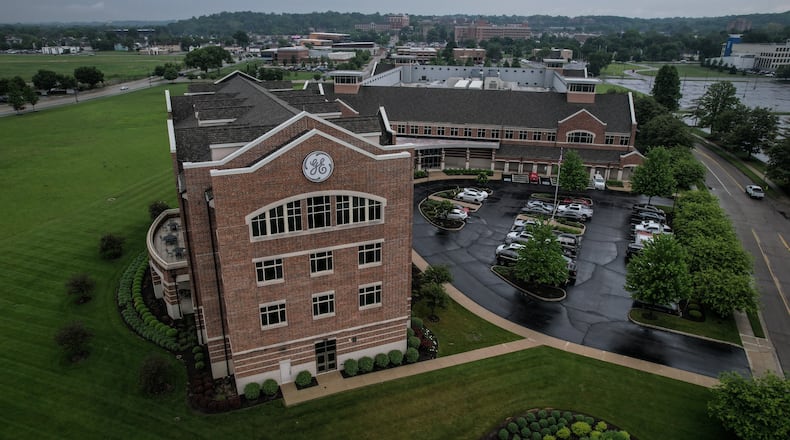The building’s physical footprint will not change, GE officials said.
It is NASA’s partnership with GE that is driving the investment, although GE officials cautioned in interviews Tuesday that the cell will not be devoted exclusively to work with NASA.
“This is not an announcement that comes lightly,” said Christine Andrews, leader of GE Aerospace’s hybrid electric systems team. “This has been well in the works for 18 months.”
GE officials did not offer specifics when asked how the expansion would affect employment at the site.
NASA recently selected GE Aerospace to develop an integrated, megawatt (MW)-class hybrid electric propulsion system as part of a program dedicated to exploring hybrid electric flight, the “Electrified Powertrain Flight Demonstration” program, GE said.
Plans call for ground and flight tests of the hybrid electric system this decade, with Boeing, using a modified Saab 340B aircraft and GE’s CT7 engines.
One idea animating the work is the goal of a lower emissions, single-aisle aircraft, but that’s one purpose of current testing within this realm: To see how hybrid power will work on aircraft, and which aircraft are most suitable.
“The future of flight is more electric,” said Mohamed Ali, vice president of engineering for GE Aerospace. “GE Aerospace has been developing the building blocks for hybrid electric engine technologies for years, combining our world-class propulsion engineering, electrical power generation and electrical power system management experience. Our new investment in EPISCenter to support hybrid electric engine testing affirms our commitment to the development of game-changing technologies for the aviation industry,”
Then-GE Aviation opened the $53 million facility in late 2013 on about eight acres on UD’s campus on River Park Drive across from the Great Miami River. Construction started in late 2011.
The center was thought then to be the only one of its kind because of its capability to simulate and test complete electrical power systems in airplanes. At the time, GE’s electrical power business was expected to double, due to the demand for more power on aircraft.
Today, the building is nearly full of projects and tests, Andrews said.
“My team almost spends more time here than they do at the Evendale facility, just testing, testing, testing,” she said in a briefing with aviation industry writers Tuesday.
The 138,000-square-foot facility was seen as the intellectual heart and soul of GE’s electrical power business, growing to close to 200 researchers in its first several years.
The state of Ohio awarded a $7.6 million Research and Development Center Attraction grant as an incentive to GE to build the center.
Dayton GE Aerospace Electrical Power Integrated Systems Center facts
--- Opened in 2013
--- Research done on airplane electric power systems
---Located on 8 acres on River Park Drive University of Dayton campus
---Initial construction costs were $53M
---138,000-square-foot facility employed close to 200 researchers in first 2 years
About the Author

